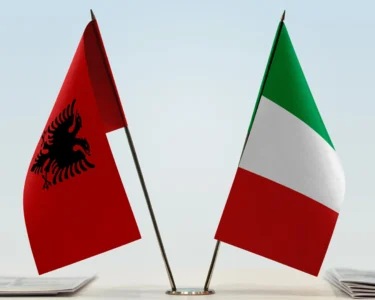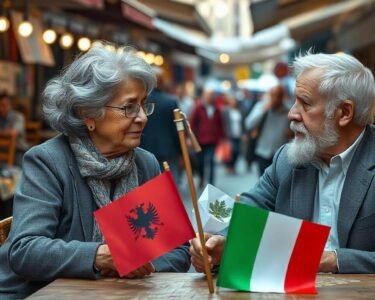Congressman Arnaldo Lomuti is the chairman of the Italy Albania Bilateral Friendship Section, which operates within the Inter-Parliamentary Union. He tells us about his experience in this role and makes some interesting proposals.
What is the state of relations between Italy and Albania?
The relations between the two countries are friendly relations, historical relations established over time. I come from a region Basilicata where there are several Arberesh communities. I myself am I have an Arbëreshë, My father comes from one of these communities. From personal experience, but as an Italian, I say that the relationships with the Albanian people have been consolidated over the years. Now there are accelerations imposed mainly by geopolitics. There is the issue of the entry of the Western Balkans into the European Union. We welcome Albania's entry, and Albania must look to Italy as a reliable partner that can accompany this journey in the most fruitful way possible. This is a crucial step.
The Albanian government recently took a significant step forward in moving closer to Europe. Italy could help the Albanian state speed up the pace. By the way, Europe's diplomatic representative in Albania is an Italian...Could Italy do more?
If we refer to the timing it does not depend so much on Italy, which even in Europe is a sort of big brother that can facilitate Albania, which among the countries on the waiting list is the one that has more than the others what it takes. Not only because of its territorial proximity but especially because of the great strides it is also making economically and on issues such as the fight against corruption, legality , security. Italy can do more but I don't think Italy should put itself on a dominant level: the relationship must be based on mutual respect. Perhaps a few more bilateral agreements would be needed.
After an initial enthusiasm of Italian business towards Albania-there are 2850 Italian companies operating in the Republic of the Eagles-there seems to be a slowdown. Perhaps a more coordinated and not occasional national strategy would be needed. Could the parliamentary intergroup you chair take some initiative in this direction?
Absolutely. We can really make a lot of proposals in the energy sector, in the intensification of trade, in agriculture in particular where projects with benefits for both sides can be implemented. We need to sit down at a table and discuss with our Albanian brothers and sisters to define what are can the issues of common collaboration. This is the bet that as president I would like to take forward immediately in an atmosphere of brotherhood, looking at differences not as elements that divide us but as factors that indeed unite us.
Prime Minister Edi Rama is putting a lot of emphasis on tourism, which has shown remarkable results in terms of numbers. But is there also a problem with quality ?
This is a crucial issue. The natural beauty, not only of the coasts but also of the interior, is a gold mine for Albania. However, a lot of training is needed throughout the tourism industry to improve the services offered to a clientele, especially international, that is very demanding. Italy has a lot of experience in this area and could provide Albania with the necessary know-how.
Relying on tourism alone could prove insufficient in the long run to ensure prosperity and improved living conditions for large sections of the population. Without an industrial structure could what is happening in Italy occur in Albania, with the closure of many companies and a kind of desertification of industry?
The Albanian government is well aware of this problem and is aware that in order to grow the economy in a stable and solid way, industries in manufacturing and agricultural processing are needed. Moreover, Albania has a very low cost of energy and this could certainly be a factor in competitiveness. Closer cooperation with Italy could foster Albanian industrial development by also creating a kind of fruitful integration between the two economies in some sectors.
The Italian economic boom of the 1950s and 1960s did not solve the territorial imbalance between North and South. What lessons should Albania learn from our experience?
In Albania, in fact, whirlwind growth is taking place. Here the situation is reversed: the North is less developed than the South. And the Trana government should put in place all the tools to avoid the double speed that then results in social tensions. Implementing public investment and infrastructure, but not welfarism, is the advice we can give to our Albanian friends.
On the cooperation between the Italian and Albanian governments regarding emigration what is your personal opinion?
I am highly critical because I do not believe that relations between the two countries should be based on a kind of favor that Albania does for Italy in exchange for Italian pressure to join the European Union. The operation in my opinion is wrong in principle, regardless of what the European authorities may decide. It is a very expensive project that does not solve the problem of immigration. The very issue of migration flows is crucial in the 'political agenda of all parties both majority and opposition. The Shengjin and Gjader centers will not produce any results except on a propaganda level. Public money is being misused that could be spent on strengthening relations between the two countries with a view to joining Europe.





